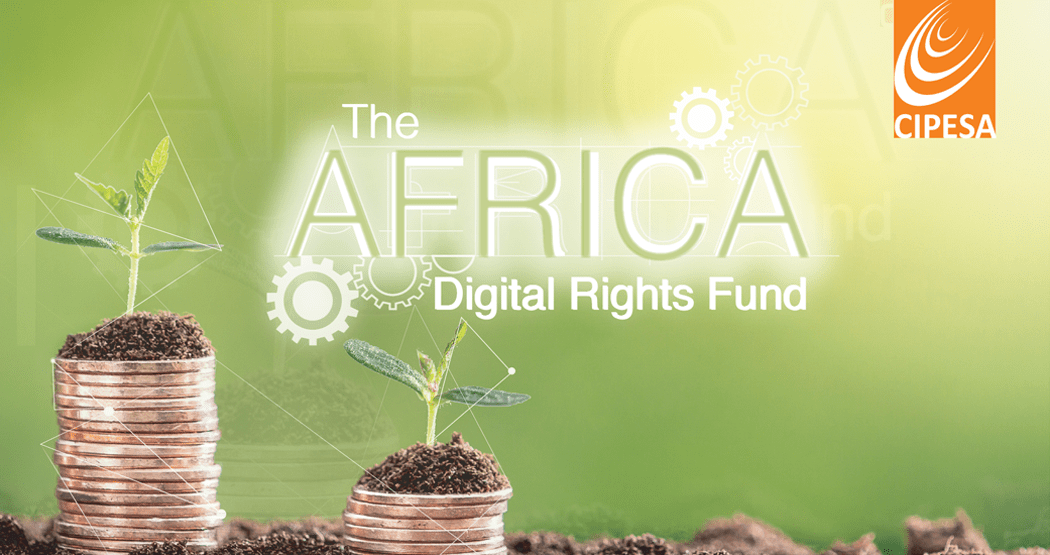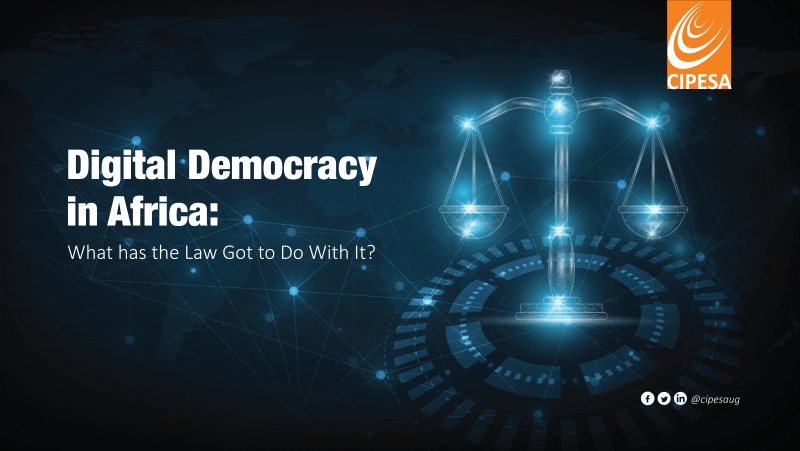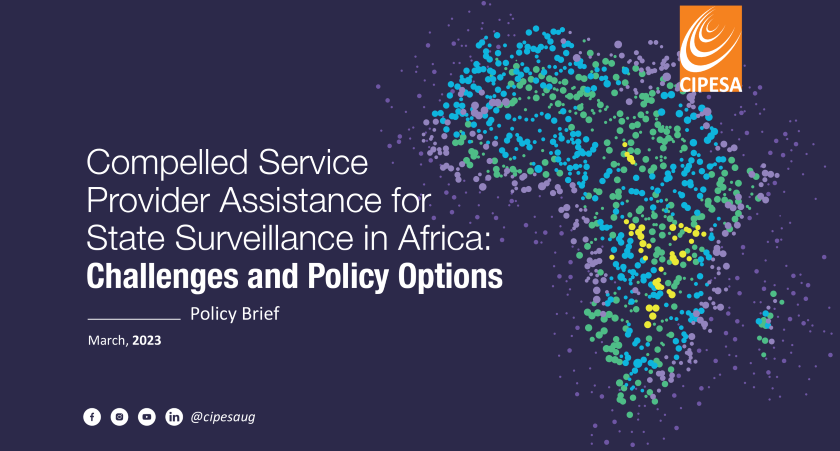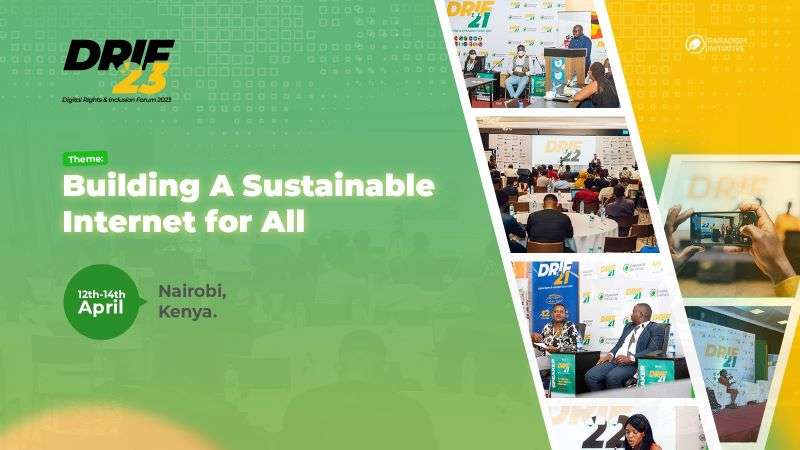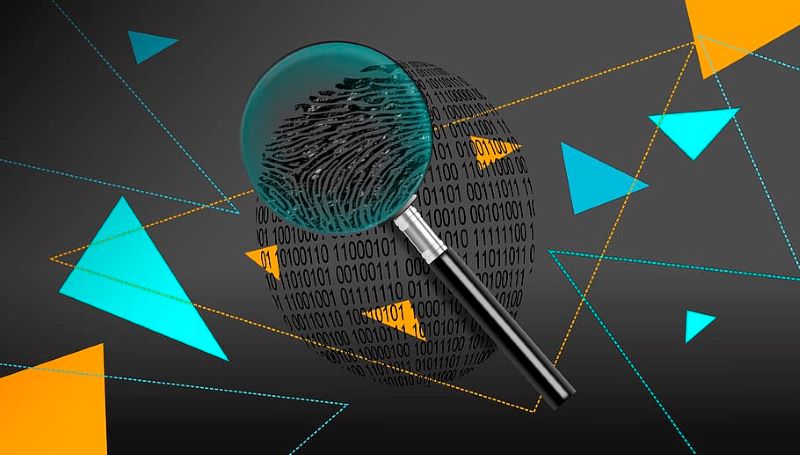Announcement |
The Collaboration on International ICT Policy for East and Southern Africa (CIPESA) is calling for proposals to support digital rights work across Africa. The current call is particularly interested in proposals for work related to:
- Data governance including aspects of data localisation, cross-border data flows, biometric databases and digital ID
- Digital resilience for human rights defenders, other activists and journalists
- Censorship and network disruptions
- Digital economy
- Digital inclusion including aspects of accessibility for persons with disabilities
- Disinformation
- Online violence against women
- Platform accountability
Grant amounts available range between USD 1,000 and USD 10,000, depending on the need and scope of the proposed intervention. Cost-sharing is strongly encouraged and the grant period should not exceed six months. Applications will be accepted until May 5, 2023.
This call for proposals is the seventh under CIPESA’s Africa Digital Rights Fund (ADRF) initiative which provides rapid response and flexible grants to organisations and networks to implement activities that promote digital rights, including advocacy, litigation, research, policy analysis, skills development and movement building. Since its launch in April 2019, the ADRF has to-date supported 52 initiatives with a total sum of USD 649,000 across 39 African countries and contributed to building capacity and traction for digital rights advocacy on the continent.
Highlights of ADRF-supported initiatives
- Raising visibility of digital rights issues and pushing for reforms in Somali territories.
- Documenting the impact of Covid-19 on the digital rights landscape in Mauritania, Morocco, Algeria, Tunisia, and Libya.
- Promoting consumer protection in Kenya’s digital financial services sector.
- Exploring identity-driven hate speech, misinformation and harassment in Algeria, Cameroon, Ethiopia, Nigeria, Sudan, Tunisia, and Uganda and analytical stories on platform regulation.
- Illustrating linguistic diversity online through essays on first languages in South Africa, Yorùbá in digital spaces, making Swahili visible, fact checking in Bambara and Covid-19 native language content.
- Researching the data rights ecosystem in Kenya.
- Development of a toolkit for understanding the legal frameworks that affect access to information in contact tracing databases during a public health crisis in Botswana, Nigeria and Uganda.
- Researching data protection and privacy in Namibia.
- Studying the role of technology in human trafficking in the Democratic Republic of Congo (DR Congo), the Gambia and Mauritania.
- Promoting data protection in digital financial services in Ghana.
- Digital rights coalition building in DR Congo.
- Confronting online abuse against women in Somalia.
- Capacity development in digital literacy and security for refugees from DR Congo, Eritrea, South Sudan and Sudan.
- Pushing back against barriers to digital accessibility for persons with disabilities and boosting web accessibility in Mozambique.
- Building cyber-smart women entrepreneurs in Nigeria.
- Pushing back against gender disinformation in Uganda.
- Supporting fact checking in South Sudan.
- Safeguarding digital rights in Africa’s growing digital economy.
- Rights-based assessment of Artificial Intelligence (AI) applications in South Africa.
- Promoting journalists’ safety in Ghana and Nigeria.
Application Guidelines
Geographical Coverage
The ADRF is open to organisations/networks based or operational in Africa and with interventions covering any country on the continent.
Size of Grants
Grant size shall range from USD 1,000 to USD 10,000. Cost sharing is strongly encouraged.
Eligible Activities
The activities that are eligible for funding are those that protect and advance digital rights. These may include but are not limited to research, advocacy, engagement in policy processes, litigation, digital literacy and digital security skills building.
Duration
The grant funding shall be for a period not exceeding six months.
Eligibility Requirements
- The Fund is open to organisations and coalitions working to advance digital rights in Africa. This includes but is not limited to human rights defenders, media, activists, think tanks, legal aid groups, and tech hubs. Entities working on women’s rights, or with youth, sexual minorities, refugees, and persons with disabilities are strongly encouraged to apply.
- The initiatives to be funded will preferably have formal registration in an African country, but in some circumstances organisations and coalitions that do not have formal registration may be considered. Such organisations need to show evidence that they are operational in a particular African country or countries.
- The activities to be funded must be in/on an African country or countries.
Ineligible Activities
- The Fund shall not fund any activity that does not directly advance digital rights.
- The Fund will not support travel to attend conferences or workshops, except in exceptional circumstances where such travel is directly linked to an activity that is eligible.
- Costs that have already been incurred are ineligible.
- The Fund shall not provide scholarships.
- The Fund shall not support equipment or asset acquisition.
Administration
The Fund is administered by CIPESA. An internal and external panel of experts will make decisions on beneficiaries based on the following criteria:
- If the proposed intervention fits within the Fund’s digital rights priorities.
- The relevance to the given context/country.
- Commitment and experience of the applicant in advancing digital rights.
- Potential impact of the intervention on digital rights policies or practices.
The deadline for submissions is Friday May 5, 2023. The application form can be accessed here.

